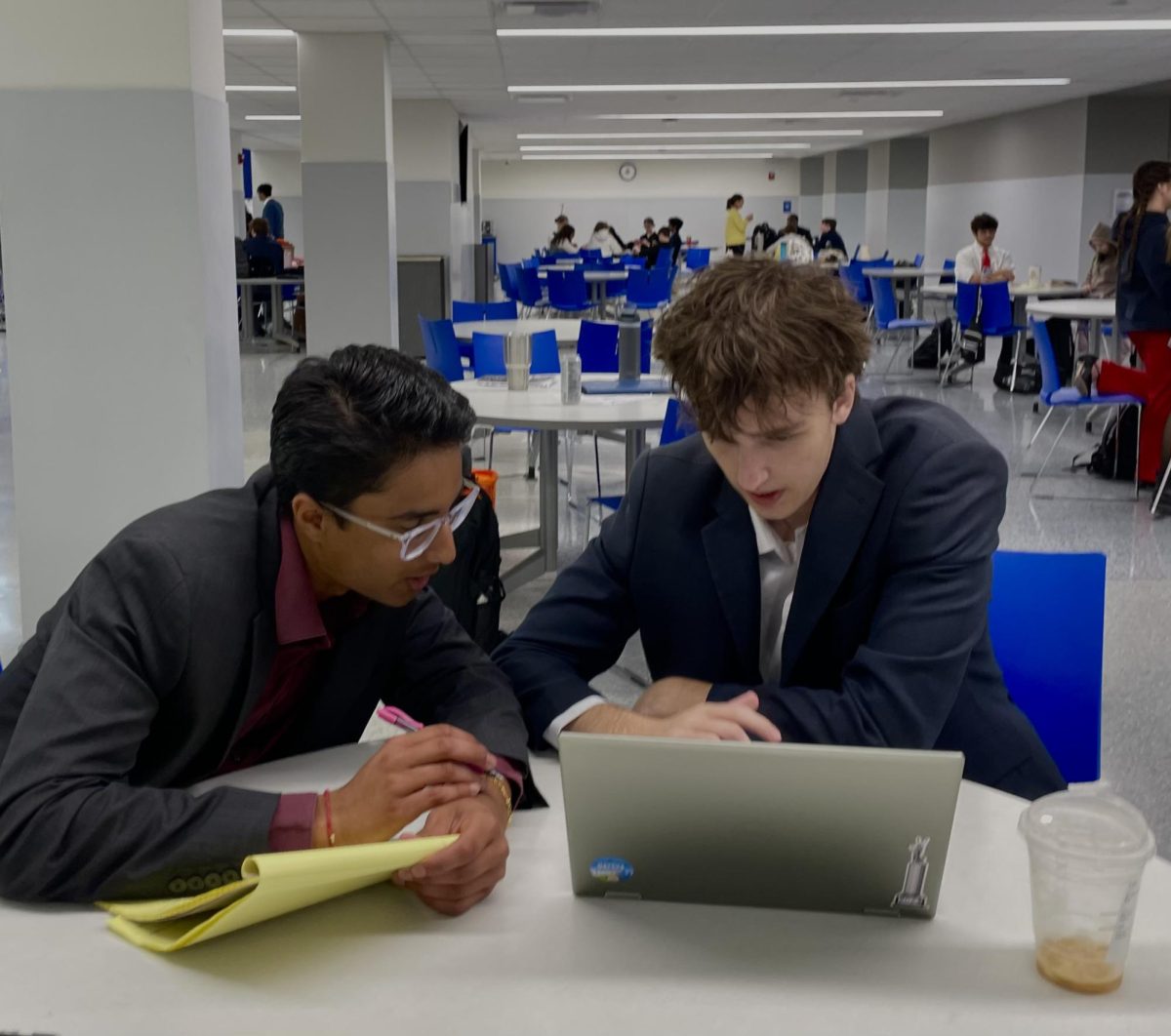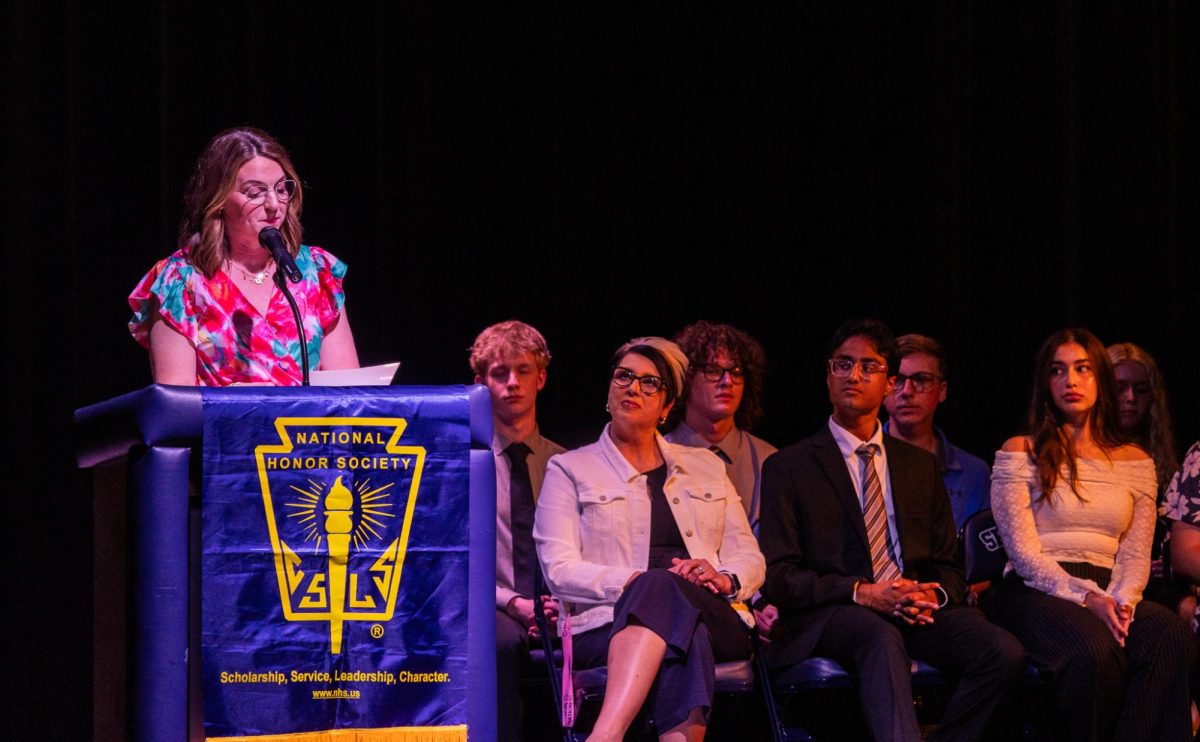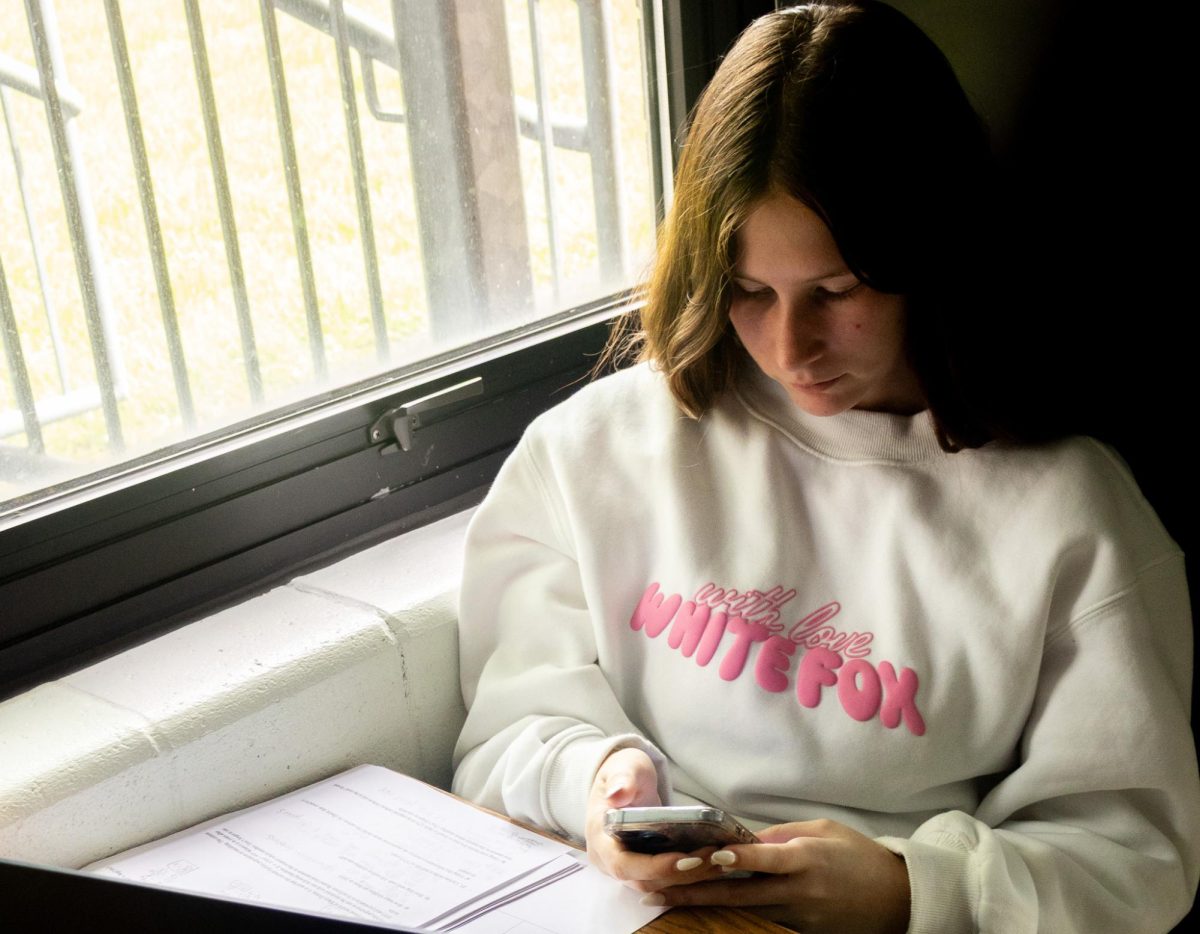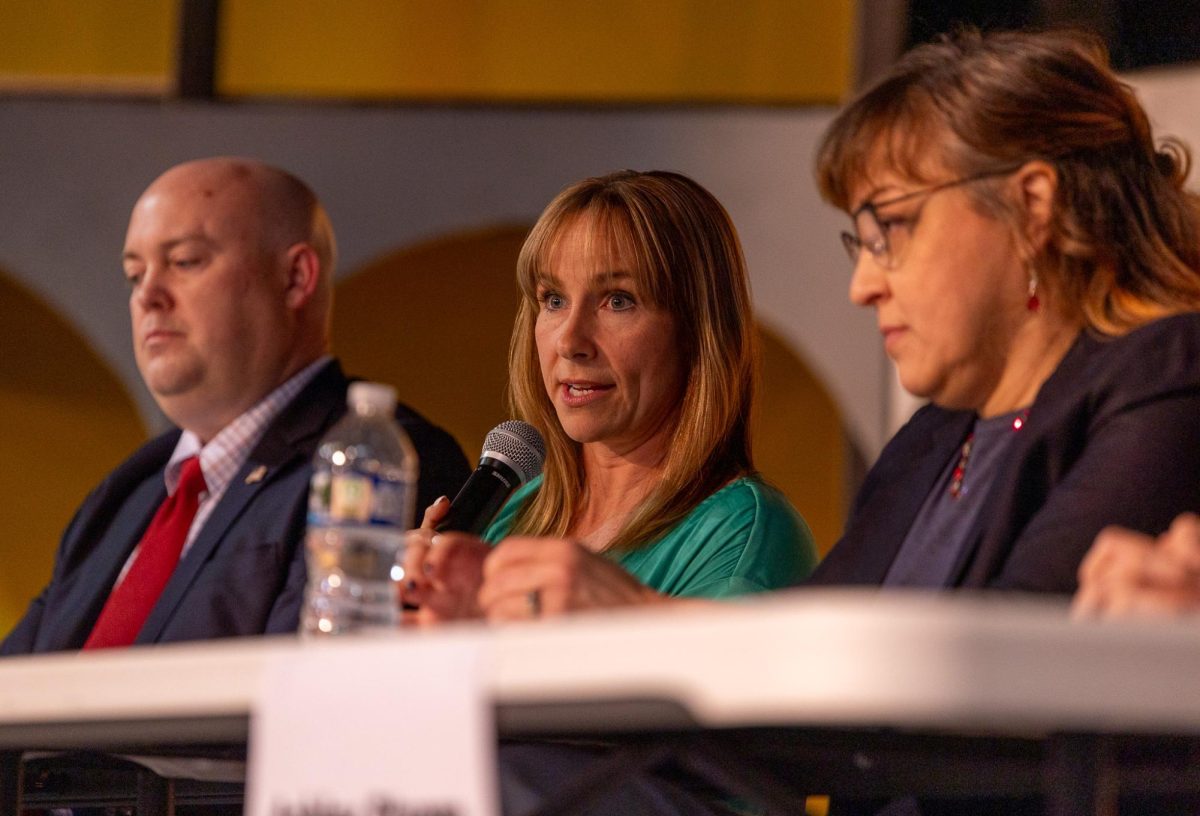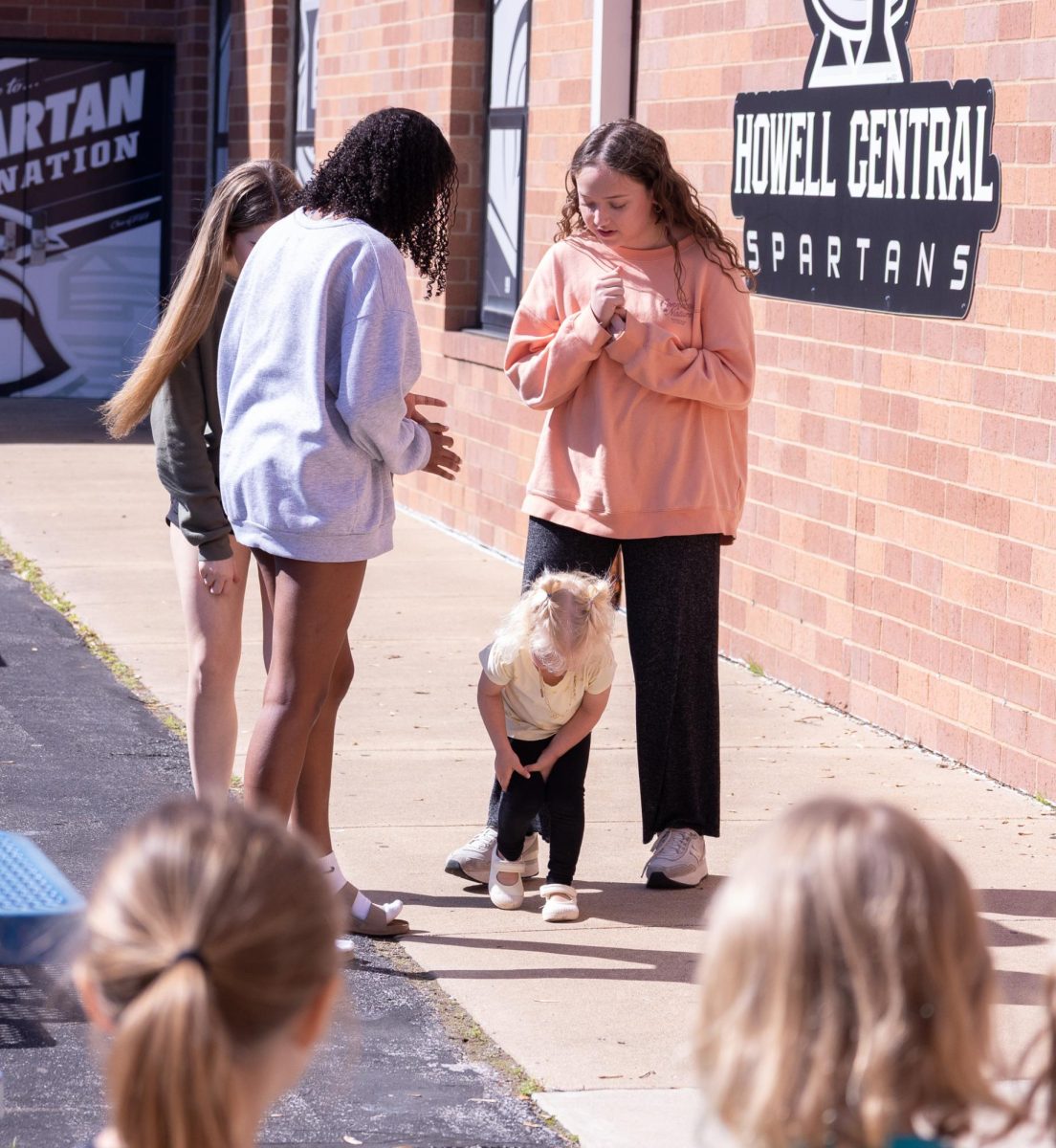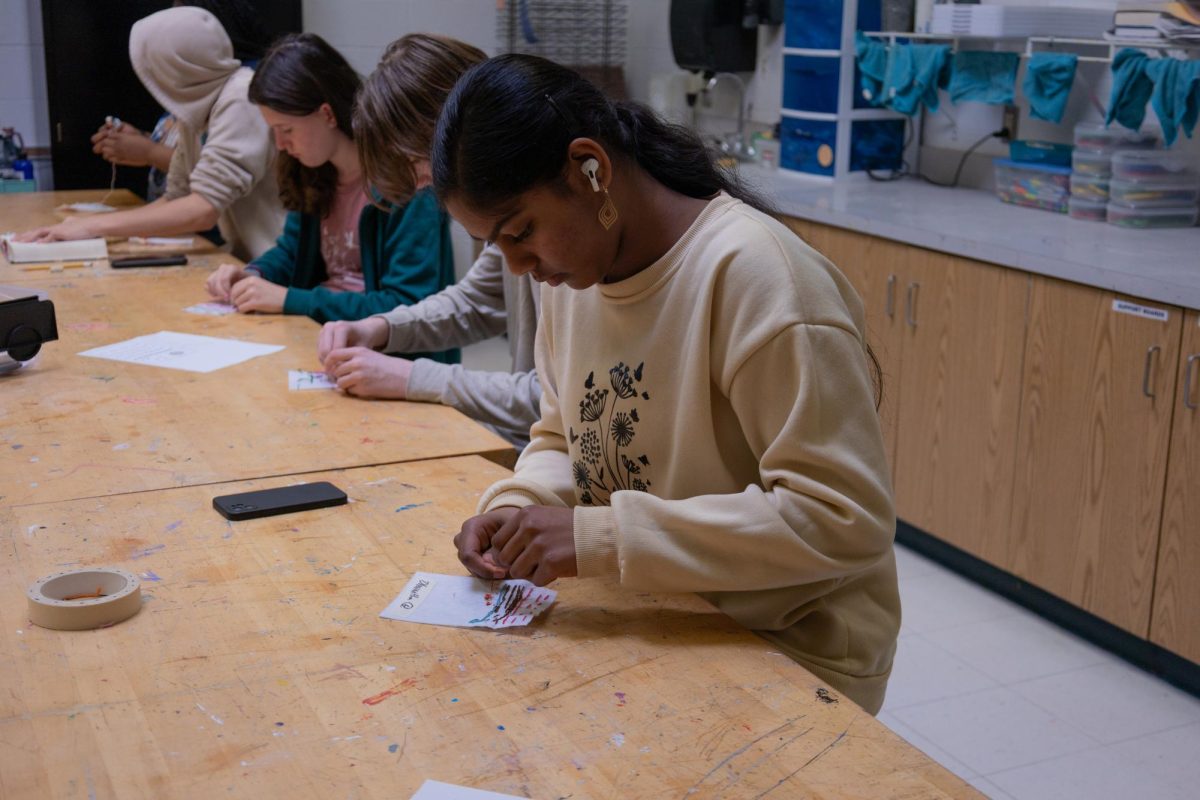It’s Friday afternoon, and the Francis Howell Central speech and debate team pulls out of the school, preparing themselves for yet another speech-filled weekend. The team has spent weeks preparing for their tournaments, which seem to never stop. But for the participants, this isn’t just about winning. It’s about something deeper: the thrill of persuasion, the adrenaline of performance, and the camaraderie that develops.
Tournaments typically span an entire weekend, beginning on Friday afternoon with the first preliminary rounds of either speech or debate. The format varies depending on the event, but typically the remaining preliminary rounds and elimination rounds are held on Saturdays. Students compete in different categories, such as congressional debate, extemporaneous speaking, and original oratory, each with its own set of rules and judging criteria.
Senior Debate Captain Luke Paulus remembers the first time he stepped into the world of competitive debate.
“I joined speech and debate at the beginning of my junior year,” Paulus said. “Following sophomore year, I stopped playing sports, and that opened up a lot of free time for me, so I wanted to pursue some new adventures. Debate was always something I was interested in, because I’ve always been pretty arrogant, and I like argumentation, so I decided to join.”
Little did he know that his love for argumentation would lead him to success, winning multiple tournaments in the St. Louis area and a spot at nationals for public forum debate in his first year.
“It’s a nice balance of argumentative depth and accessibility because public forum is comprehensible to the everyday person, given the like approachability of a lot of the resolutions, but at the same time, it’s still a good avenue to have good discourse about important topics,” Paulus said.
Public forum debate involves a 45-minute round of two teams of two students each, where participants argue for or against a resolution. In each round, the judge votes on whichever team presents the best arguments to win.
On the other hand, extemporaneous speaking requires competitors to prepare a topic with little notice. Students receive a question, typically relating to current events, and have 30 minutes to craft their response into a seven-minute speech. Junior Addie Law, president of the speech and debate team, often competes in both domestic and international extemporaneous events.
“Extemporaneous speaking has really built my ability to public speak without any preparation. It makes me a better speaker,” Law said. “Being able to talk about anything, just with a simple prompt, is a very important skill to have; It’s a great way to expand your horizons. You learn so much random stuff you would never know. You learn about different countries, different continents, and different types of people, it’s really interesting.”
Other speech events are more on the creative side, such as storytelling. In storytelling, competitors bring to life an eight-minute memorized narrative, often with dramatic flair and creative expression. Junior Van Mutert has competed in storytelling since his freshman year and enjoys the fun that comes with it.
“I like the whimsicality of storytelling,” he said. “I like acting goofy in a way, but also having a fun time doing it.”
Mutert recently placed eighth in storytelling at the MSHSAA State Qualifying Tournament and will compete at the state competition in April.
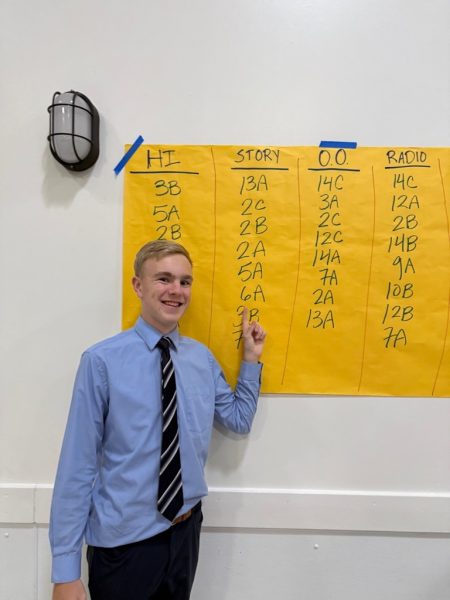
Storytelling and extemporaneous speaking are just two of the 12 different speech events and 15 events overall. Each event has its judging format. Judges, often parents, coaches, or former competitors, evaluate based on criteria like delivery, clarity, and content. Rounds generally last an hour or so, with students competing multiple times in the tournament. After preliminaries, the top students advance to elimination rounds, where the stakes are higher and competition is more intense.
Beyond the race to win, tournaments provide students with opportunities for connections and community. Law enjoys mingling with competitors from other teams and chatting with like-minded individuals.
“I like just going to the tournaments and having that community where everyone is because it’s like a vibe,” Law said.
The friendships formed that take place between rounds are often just as meaningful as the victories.
For many, like Mutert, speech and debate is also about having fun while learning life skills.
“I was just having a lot of fun. I liked talking a lot, and then I started having a lot of success, which further motivated me to continue,” Mutert said, reflecting on his experience. This mix of fun and competition is what keeps so many students coming back each year.
“I would recommend the club to anyone who has always liked arguing,” Paulus said. “I mean, if you’ve always been someone to argue with your parents or have music or basketball debates with your friends, I think you’ll enjoy the argumentative side of debate. And if you’re someone that’s into arguing, if that’s something you enjoy, like as a pastime, debate is literally just competitive arguing.”
By the time the final rounds roll around, competitors like Paulus, Mutert, and Law have invested hours into research, practice, and preparation. And while winning is certainly a goal, for these students, the true rewards lie in the lessons learned, the friendships made, and the skills they’ll carry with them long after high school.




